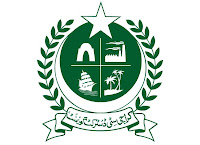Tuesday, November 17, 2009
Call Center Technology—Is It a Help or a Hindrance In Your Company?
Therein lies the challenge—how to effectively utilize and manage a call center to best serve the needs of both the customer calling in and the company itself. The main purpose of the call center is to provide excellent service in order to increase customer satisfaction and retention. In the mind of the customer, the person with whom they are speaking is the company. The smart companies are using their call centers to partner with the customer in order to enhance the experience that their customers are already having with them in order to generate retention, loyalty, and increased profits.
Focus On the Customer By Using Technology
Call centers are striving toward high efficiency and effectiveness. This is aided by new technological developments that have appeared on the market at lightening speed in recent years. Customer Relationship Management (CRM) software provides amazing tracking and scheduling for customer touchpoints and purchases. Call center technology has advanced to the point where calls can be monitored and tracked, queued at the point of inception, as well as time per call demonstrating work flow and scheduling needs, etc.
All of this technology is extremely useful provided the focus remains on the needs of the customer. Technology is a wonderful thing, but steps need to be taken to ensure companies aren’t using it as an obstacle for the customer or losing the personal aspect of the interaction. Automated attendants, voice queues, time per call measurements are useful and have their place, yet the “live person” is what so many consumers prefer and appreciate. Once we lapse into having technology “process” our customers, the quality of the call suffers in the drive to minimize the duration of each call.
Your Call Center Presents Opportunity
The call center is an excellent opportunity to focus on customers and grow business. It is an avenue of communicating with customers during which customer expectations can always be exceeded. The goal is to maximize the relationship between the company and the customer through the call center. The key word here is "relationship."
Customers are buying the relationships that we are promising them, not merely our product or service. When the customer has an excellent experience with the call center, customer loyalty and retention improve. Technology improves the effectiveness and efficiency of true partnerships with customers. It serves as the foundation of information for the call center employees to carry the experience to the next level. CRM software can relay the previous purchases of the customer, yet the call center staff themselves are developing the sustainable and loyalty driven relationship when they actively and genuinely engage with the customer to anticipate needs before the customer is even aware they have them. When customers feel that the call center staff and company is truly on their team, they reward the call center and the business with their loyalty and dollars.
About the Author
Originally Published here
Friday, November 13, 2009
Success Stories of Contact Center Outsourcing in Pakistan

1. Chevron Pakistan Ltd (0800-12122)
• Chevron Pakistan Limited a leader in the global integrated energy business realizes that their customer services need an effective channel.
• They had a decentralized terminal based order taking system which was causing delay in deliveries.
• In anticipation of a significant increase in orders they had a need of an innovative order taking solution. To remedy this, Chevron decided to outsource and partnered with Arwen Tech to examine their processes, recommend potential solutions, implement the most appropriate service, and then evaluate the results.
They Initiated with Customer Support Services only, then they Started order taking services for one location Karachi only. The efficiency provided by the Arwen Tech meant that Chevron was able to speedup adequately the total order taking operation. The Karachi operation was considered to be best practice in the Chevron and this model is now used to drive innovation and expansion throughout Pakistan, Orders taken at our call center directly through their SAP system (Singapore).
2. City District Government Karachi (CDGK) 1339

• CDGK was trying to take a brave initiative to make an effective channel for the citizens of Karachi to hear and solve their problems
• CDGK had a need to develop a system that will act as interface between the citizens and government a trustable platform by which citizens will be able to register their complaints effectively
• They had a pressing need to quickly transition all The Citizens complaints for that they needed to get connected with 18 town offices KBCA, KW&SB and Civic Center and a centralized complaint center in a short time frame.
For The City District Government Karachi, the easy answer was Arwen Tech and Contact Center Outsourcing.
In just five months--from August 2007 to January 2008— Contact Center Outsourcing made it possible for them to be the first ISO Certified District Government in Pakistan including KBCA, KW&SB and all 18 Town Offices. And made it possible to successfully transition all the complaints and connectivity of 18 towns with an outsourced call center to Arwen Tech in record time― and, in doing so, meet the stringent requirements to create a feeling in the populace that government officials are interested in hearing their voice on 24/7 basis.

3. Pfizer Laboratories Limited, Pakistan (0800-DIRECT) (0800-IQUIT)
• Pfizer the world's largest research-based biomedical and pharmaceutical Company became increasingly aware of the need for a solid customer relationship solution.
• Pfizer searched for a partner who could identify with their Needs and provide them with a robust solution that would enable them to gain customer loyalty as well as attract new customers
After searching for a customer service provider, Pfizer recognized Arwen Tech as the industry leader in customer care and chose to partner with for contact center services.
To show appreciation to their customers, Pfizer is offering their consumers a free product Home delivery services as well as an advisory services for an anti-smoking campaign IQUIT (0800-47848) through First ever call center outsourcing in pharmaceuticals industry of Pakistan to promote customer loyalty. Pfizer’s Call Centre providing service 9.30 AM to 5.30 PM and 6 days a week customers can call at their Toll Free Number 0800-DIRECT (0800-34798) from Karachi, Lahore, Islamabad & Multan and inform operators about product and contact details. Once they confirm an order, Area distributor contacts them and delivers the product at their home within 2-3 days from the date of placement of an order.
Further To build the rapport and the relationship with customers they invite them to give feedback by giving them a Courtesy calls.

4. Adamjee Insurance Company, Pakistan (0800-00242)
• Adamjee Insurance Company Limited, already among the top insurance Company of Pakistan, hopes to attain industry leadership by combining the best product range with outstanding customer service.
• A large part of its business is conducted by telephone, and the company needed a complete and detailed picture of all its customer interactions in that channel. It needed to gain full visibility of the pattern of all its telephone contacts with customers.
• In order to deliver on its commitment to continuous improvement, Adamjee Insurance needed a clear view of the quality of customer experience when contacting the organization.
Adamjee Insurance Company Limited the leading insurance company of Pakistan partnered with Arwen tech to setup the 1st insurance call center in Pakistan after seeking a business partner who recognized the importance of a customer care program. Having exceeded the client’s initial goals, the client sought assistance from Arwen tech for help increasing revenue by implementing a solution selling component to its program.
Sunday, October 4, 2009
An Interview with Mr. Kashif Siddiqui
I watched a great interview of Mr. Kashif Siddiqui who shared valuable information about CRM and I feel privileged to share this interview at my blog
Wednesday, June 17, 2009
A Trip to the Top... that Broke the Mould: An interview with Ziad Bashir

This month we speak to Ziad Bashir about how he stepped out of his family's business and changed Pakistan's IT industry.
Ziad Bashir should have had a relatively easy life. He could have stuck to his family’s financial, energy and textile business in Pakistan. Alternatively, he could have developed an enterprise in a tried-and-trusted business sector in his native country. Or he could have simply offered the same services as other companies in the IT sector.
After all, IT spend in Pakistan is growing at a staggering 30% every year, so being moderately successful in the industry would have been fairly straight-forward.
But just being fairly successful at anything just isn’t Ziad’s style. The founder and chairman of global enterprise solutions provider, Arwen Tech, has taken a few moments out of his busy schedule to tell us how he developed the company into the hugely successful organization it is today, and what he thinks it takes to make a Trip To The Top.
Promising beginnings to end results
“Before Arwen Tech, no one was providing end-to-end IT solutions in Pakistan. No one was taking responsibility for the end result, and no one was offering the breadth of services required. It’s not too easy to do!”
But Arwen Tech and Ziad Bashir are not daunted by a challenge.
“In July 2004, I was working in my family business, when I saw the opportunity of IT”, he recalls. “Technology like that has the power to bring many different, disparate things together. And it affects everyone’s lives. Something of that nature is obviously the shape of things to come.”
But let’s go back to the beginning. What is Ziad’s background? “University and business school in the US”, he explains, “with a stint in the family business during the holidays – which is where I ended up for the first six years of my career.”
Was that a safe option, then? “No – not at all! I always say that there’s no school for entrepreneurship – so I decided to use the opportunity of the family business to launch a textile retail venture and educate myself.”
Having learnt how to incubate new businesses and take them forward as successful ventures, Ziad was looking for a new challenge. His experience of the problems involved in setting up new IT systems for his ventures gave him the idea of providing the end-to-end solutions that Pakistan business lacked.
“I bought a small company – 8-10 people, with a turnover of around $700k. It had small IT agencies for different specialities and was an Avaya partner. It also had a very small call-center operation, affiliated to the fast-food sector in Pakistan.”
Did he make any major changes? “Well – one was to switch from Avaya to Cisco”, he says, laughing. “It was clear that they had the range of products we needed.”
A complete reorientation of the company led to the first year’s profits jumping to $1.2 million. A substantial increase to be sure, but nothing like the $17 million turnover the company generates these days. What allowed him to make the transition to the major league?
“Two major projects really made the difference for us”, he explains. “Our first big contract was with the service provider Pakistan Telecommunications Company Ltd (PTCL), who is behind the Pakistan intranet exchange. After that, we didn’t look back.”
“The next significant job was the Lahore Expo center. It was important because it leveraged all that Cisco does – and shows how well we put it all together! In fact, you could say it showcases everything under one roof – surveillance, telecommunications, access control, public address – even display and signage.”
Why was the bid successful? Ziad is adamant. “We felt that our Silver certification, plus the breadth of Cisco Products made Arwen the front runner for this project.”
Breaking with Tradition
Did Ziad feel that it was a break with tradition to leave the family business?
“Yes and no. I may have made non-traditional choices by focusing on IT and the economy of tomorrow, and not just tried-and-tested industries. But I couldn’t have made those choices without the advice of my family. So I suppose you could call me a traditionalist in that sense.”
What does the future hold for Arwen Tech? Considering that IT spend in Pakistan is increasing so rapidly, this innovative organization might be tempted to ride the wave. For Ziad, however, resting on his laurels is not an option. His target is to achieve an astonishing 100% growth per year.
Ziad has become one of the most influential people in Pakistan’s IT industry. But despite the long hours he inevitably puts in staying on top of his game, Ziad still finds time for interests out of the office. Asked where most would like to be right now, he replies: “Outside, having a barbeque!”
In fact Ziad if an aficionado of all types or international cuisine – not so surprising for a man who has such a great recipe for success.
Is there one piece of advice that Ziad Bashir would share with any aspiring IT Mover or Shaker?
“The pace of the world is changing so fast – so you need to stay one step ahead and look at trends and anticipate what will come tomorrow.”
Originally posted at Cisco's Blog here
Sunday, June 7, 2009
Pakistan, A Popular Outsourcing Destination? : Business Week Artilcle
Pakistan has become the 20th most attractive outsourcing destination, according to consulting management firm A.T. Kearney. Even as concerns increase about Pakistan’s stability and the growing displaced population due to ongoing military operations with the Taliban, the country made a significant jump on A.T. Kearney’s 2009 Global Services Location Index released May 18. Pakistan went from #30 in 2007 to #20 in 2009.
In fact, the report says that as a region, the Middle East and North Africa are becoming more attractive in the ever-shifting geography of popular outsourcing places. Both enjoy large, well-educated populations and proximity to Europe. The index ranks the top 50 countries worldwide for locating outsourcing activities including IT services and support, contact centers and back-office support. Both Jordan and Egypt have entered the top 10 locales.
Countries are measured on 43 different attributes related to financial attractiveness, people and skills availability and business environment. Yet, cost is a huge motivator for many companies and is one reason that places like Pakistan score so highly. When the same index was released in 2007, about 40% of its weighting was given to the financial attractiveness of a country.
This is a global index, so it takes a look at where companies worldwide are outsourcing their work. There are plenty of companies in the Middle East, for instance, that outsource work to Pakistan. I would venture to guess the percentage of U.S. companies outsourcing work to Pakistan is much smaller. Yet, I find it intriguing that even as concern rises about the stability of Pakistan that it can become a more attractive destination to do outsourcing.
CBS News reported on May 19, the day after this index was released, that Pakistan faces a growing humanitarian crisis with up to 2 million people displaced by fighting between the military and Taliban militants in the northern Swat valley. Similarly, Mexico has seen growing violence due to the drug wars since the last Global Services Location Index was released in 2007. Yet, it only dropped one slot in the index to #11 from #10 two years ago.
So, just how much do companies factor in violence and a country’s political stability before outsourcing there? Increasingly, it seems to me if it’s cheap enough, companies are willing to overlook quite a bit in this regard. What do you think?http://www.businessweek.com/technology/technology_at_work/archives/2009/06/pakistan_a_popu.html?chan=technology_technology+index+page_top+stories
Tuesday, May 19, 2009
Karachi Rising – The Emerging Offshoring Hub
 | Changing the Way the World Does Business There is no question that offshoring has changed the way that companies do business. Multi-national companies globally continue to take strategic advantage of highly skilled but low-cost workers in developing countries to reduce costs. India and China have dominated the market, India in IT/ITES/BPO and China in manufacturing. But other developing countries are emerging as fertile land for offshoring, including Pakistan. | ||||||||||
Global Offshoring Jobs Growth and Office Space Requirements Cushman Wakefield forecasts that the US, Europe and Japan will offshore over 5 million jobs between 2005 – 2015 and this will result in outsourcing office space demand of 96.9 million sq meters (1,043,022,919 sq ft) with 35.3 million sq meters (379,966,037 sq ft) going to India. India – Skills Shortage and Cost Increase India is by far the global leading offshoring destination with close to 50% market share. India’s success however has lead to many challenges: the Indian IT/ITES/BPO industry is experiencing a skills shortage, with only 10% of graduates suitable for IT/ITES/BPO industry employment. This strain on skills has lead to 15% wage inflation per annum. The skills shortage combined with wage inflation has lead to Indian companies experiencing retention challenges, with attrition rates reaching 50%. India’s budget in 2008 made no comment on extending the Software Technology Parks of India (STPI) Scheme. The STPI provides tax holidays to India’s IT/ITES/BPO industry and the STPI tax holiday expires on March 31, 2009. Further disappointing the Indian IT/ITES/BPO industry was the decision to increase the excise duty on packaged software from 8% to 12% to bring it on par with customized software that comes with a service tax of 12%. Adding to the aforementioned challenges is the value appreciation of the Indian Rupee, thereby making India products and services even more expensive. Compared to a US dollar the Indian Rupee is now 39.93, its highest rate in 9 years. This has put the squeeze on Indian IT/ITES/BPO margins, cutting margins between 2.5 to 3.0 percentage points since mid-2006. Furthermore, the success of the IT/ITES/BPO industry has lead to higher real estate prices, leading Indian companies and global companies operating in India to seek other markets with IT/ITES/BPO skills and lower costs. Karachi – The Emerging Hub of Offshoring Karachi is the financial, commercial and transport hub of Pakistan and the gateway to the landlocked energy-rich Central Asian economies. It accounts for the lion’s share of GDP and generates 65% of Pakistan’s revenue. Karachi has the highest per capita income in South Asia and its estimated population is 16 million, which is expected to reach 32 million by 2025. Karachi is one of the ten largest cities in the world and has the highest literacy rate and most educational institutions in the country. What the Experts Say on Pakistan as a IT/ITES/BPO Destination What the Experts Say on Pakistan as a IT/ITES/BPO Destination
Pakistan IT/ITES/BPO Strengths
Pakistan’s economy continues to maintain its strong growth momentum for the fifth year in a row in fiscal 2006 – 2007. With economic growth at 7% in the current fiscal year, Pakistan’s economy has grown at a 7% average over the last five years. This growth has cemented Pakistan’s place as one of the fastest growing Asian economies. Growth in industry, agriculture and services has been supported by robust investment into the country. The economic forecast for 2007 - 2008 calls for continued at a constant rate. Agriculture and Industry produced 2/5th of growth while Services produced 3/5th of GDP growth. Real per capita GDP grew by 5.2% and has maintained 5.5% over four year. Foreign Direct Investment has increased rapidly and has reached $6.5 billion. Investment now represents 23% of GDP. Remittances reached $5.5 billion and Foreign Exchange Reserves reached $15.1 billion Source : http://www.ittowerkarachi.com/outsourcing.html | |||||||||||
Sunday, May 10, 2009
BPO Conference 2009: Too much Focus on Local Market for BPO
Also check out the video of Jehan Ara, Chairman PASHA having a few opening remarks about the BPO Conference 2009
The P@SHA-PSEB BPO conference had an analyst from McKinsey & Co - Here is the video of Faraz U Khan, giving his presenation packed with facts and figures about BPO in the region. Faraz was here at the express invitation of TRG, also one of the main sponsors of the event.
The second session of the PASHA-PSEB BPO Conference which took place on the 7th of May was about establishing closer, more effective contact with the customers through an outsourced contact center.
Sunday, May 3, 2009
BPO Event: PASHA BPO Conference 2009

Pakistan Software House Association (PASHA) is organizing the BPO Conference 2009 on May 7, 2009 from 9:00am to 2:00pm at the Institute of Bankers Pakistan.
As the financial tsunami hits worldwide markets, banks & financial services organizations are reeling from the effects as are other business sectors. Outsourcing could play an important role in driving operational efficiency in lean times.
The 2 sectors that are traditional customers for BPO are Financial Services (Banking/Insurance) and the Telecom sectors both of which are fairly well-developed and well established in Pakistan. In the Telecom market, as the market saturates we have already seen the growth stop. Survival will depend upon better customer service and quality. There will be increasing pressure to reduce operational costs. Outsourcing customer service and back-office processes would therefore make perfect sense. Currently the mobile telecom sector alone employs approximately 6000-8000 personnel in the customer service, back-office processing and related areas that could be potentially outsourced.
The Financial services sector is on a similar footing and is also facing increasing pressure on the cost side. The level of understanding of outsourcing in the Financial Services sector is not as advanced as that prevalent in the mobile Telecom sector. However, some banks have started to outsource certain functions and processes. More awareness needs to be created on the benefits of outsourcing.
The idea of holding this conference is to stimulate discussion on the benefits of Outsourcing the back-office and customer service areas as well as Help Desks and other services which do not essentially need to be done in-house.
Conference Stakeholders/Speakers/Content include: Ministry of IT & Telecom
Pakistan Telecommunications Authority
State Bank of Pakistan
PSEB/P@SHA

Case Studies and Presentations by BPO companies and their customers who have deployed BPO solutions.
Who Should Attend?:
Senior representatives from telecom companies and financial institutions
Customer service representatives from telecom, financial, insurance, public sector and multinational organizations
Senior representatives from outsourcing companies
Organizers: The conference is being organized by the Pakistan Software Houses Association for IT & IT Enabled Services (P@SHA) in collaboration with the Pakistan Software Export Board (PSEB).
Key sponsors include: The Resource Group (TRG), Ovex Technologies, Abacus Consulting and Catcos.
Supporting partners include: The Institute of Bankers Pakistan and CIO Pakistan.
The event is being produced for PASHA/PSEB by the CIO Custom Solutions Group, part of the CIO Pakistan portfolio and an IDG product.
Thursday, April 9, 2009
Old Debate of "Call Center" vs "Contact Center"

It is always helpful to go back to the basics and reinforce the foundation of your knowledge and it is never too late to to that. "Call Center" and "Contact Center" are two terminologies that we use interchangeably during our conversation with our peers or customers, despite of the huge difference between them.
Lets analyze the following two discussions which I found during my search on the internet: -
Many people tend to think of a call center as people neatly organized into rows, sitting beside their phones, answering customer calls. So what is a contact center?
Contact centers are more than headset-wearing switch-board operators. The modern contact center handles phone calls, email, and online communication – including instant messaging.
Traditionally, contact centers have been called call centers. The newer name – contact center – reflects the fact that more than just phone calls are being handled. Many call centers have evolved over the years to do much more than just answer phones.
Some companies choose to separate the handling of customer contacts by medium. For instance, a company may establish a department for inbound calls, one for outbound calls, and a group for email. Some companies, especially smaller ones, opt to create “universal agents” who handle all contact types. Companies create universal contact agents for reasons of efficiency and service, and often because they find it easier to train agents in multiple communication methods than to train multiple agents in product or service information.
Bottom line, it’s up to the customer to decide how they want to communicate with your company, and it’s up to your company to respond appropriately through its contact center.Source: Avaya Call Center vs. Contact Center
A call center is solely voice focused. Call center agents will answer phone calls from customers, partners, internal employees, or anyone else trying to reach the company. A contact center, on the other hand, answers voice calls but also has multi-channel capabilities. Agents have the training and technology support to answer phones, chats, web-based calls (VoIP) and emails. Contact centers are also referred to as “web-enabled call center” or a “customer interaction center”. In everyday conversation, call and contact are used synonymously. However, essentially, a call center is part of a contact center.
With today’s technologies, it is essential that call center become web enabled and evolve into contact center. We are in an industry that is so attached to the word “call center” even though clients may require more than just voice support.
Even though many clients call still call us a call center, we are multi-channel and can do much more than just answer phone calls. Think of joining a fitness center and only using the weight machines “(i.e. the call center portion), but you have access to the swimming pool and squash court too!
Source: Contact Center Blog "Contact Center" versus "Call Center"In my view, the Contact Center is a much broader term as compared to Call Center, which encompasses the overall customers communications/interactions using multiple-channels. A multi-channel Contact Center is capable of handling inbound/outbound calls, webchat, email, voicemail, SMS, Fax etc.
Whereas, the Call Center is comparatively a narrow term which limits itself to handling of incoming/outgoing calls only.
In the upcoming posts, I will elaborate upon Importance of Contact Center and How Contact Center Outsourcing can help organizations focus on their core business and avoid capital expenditure.





